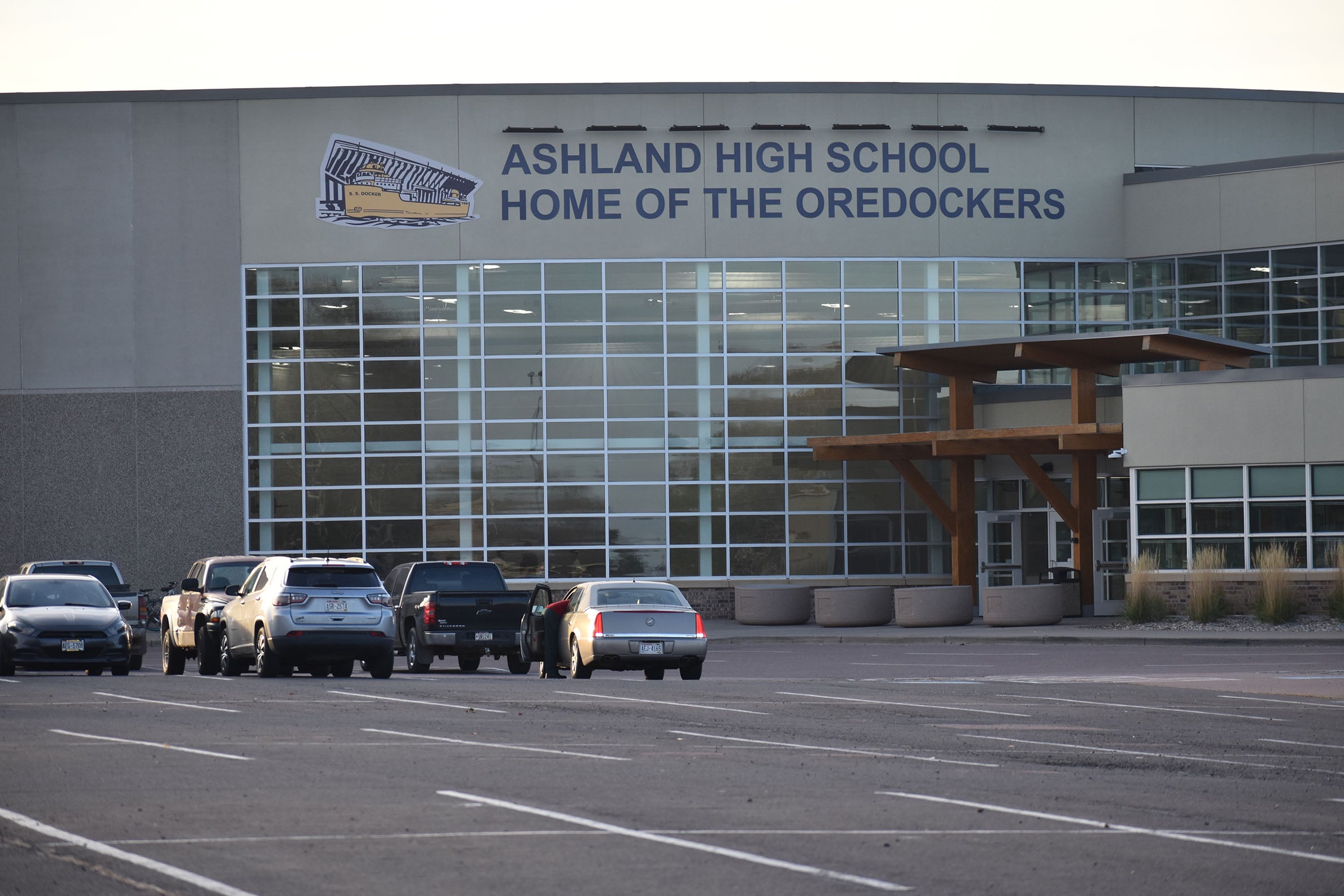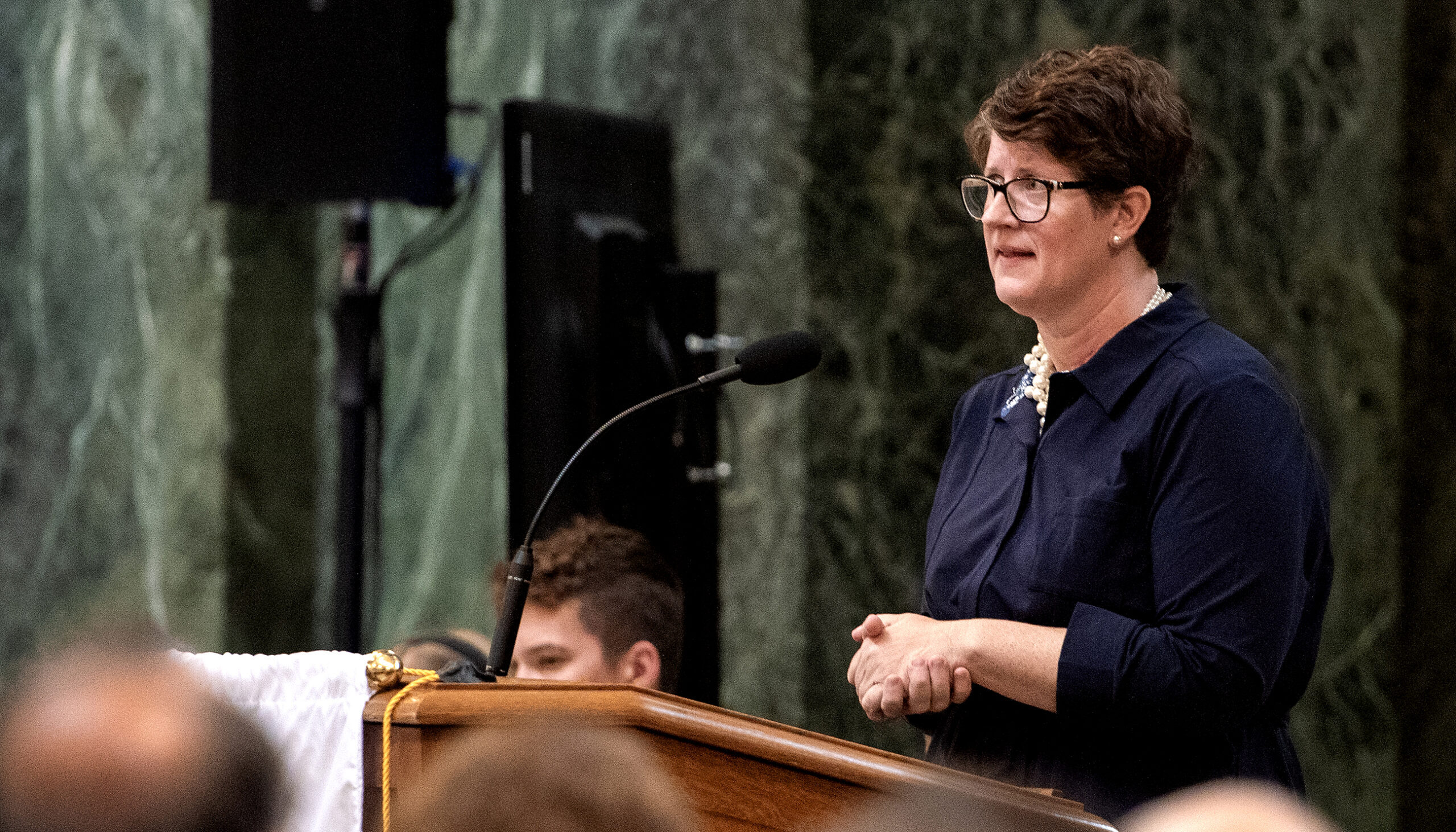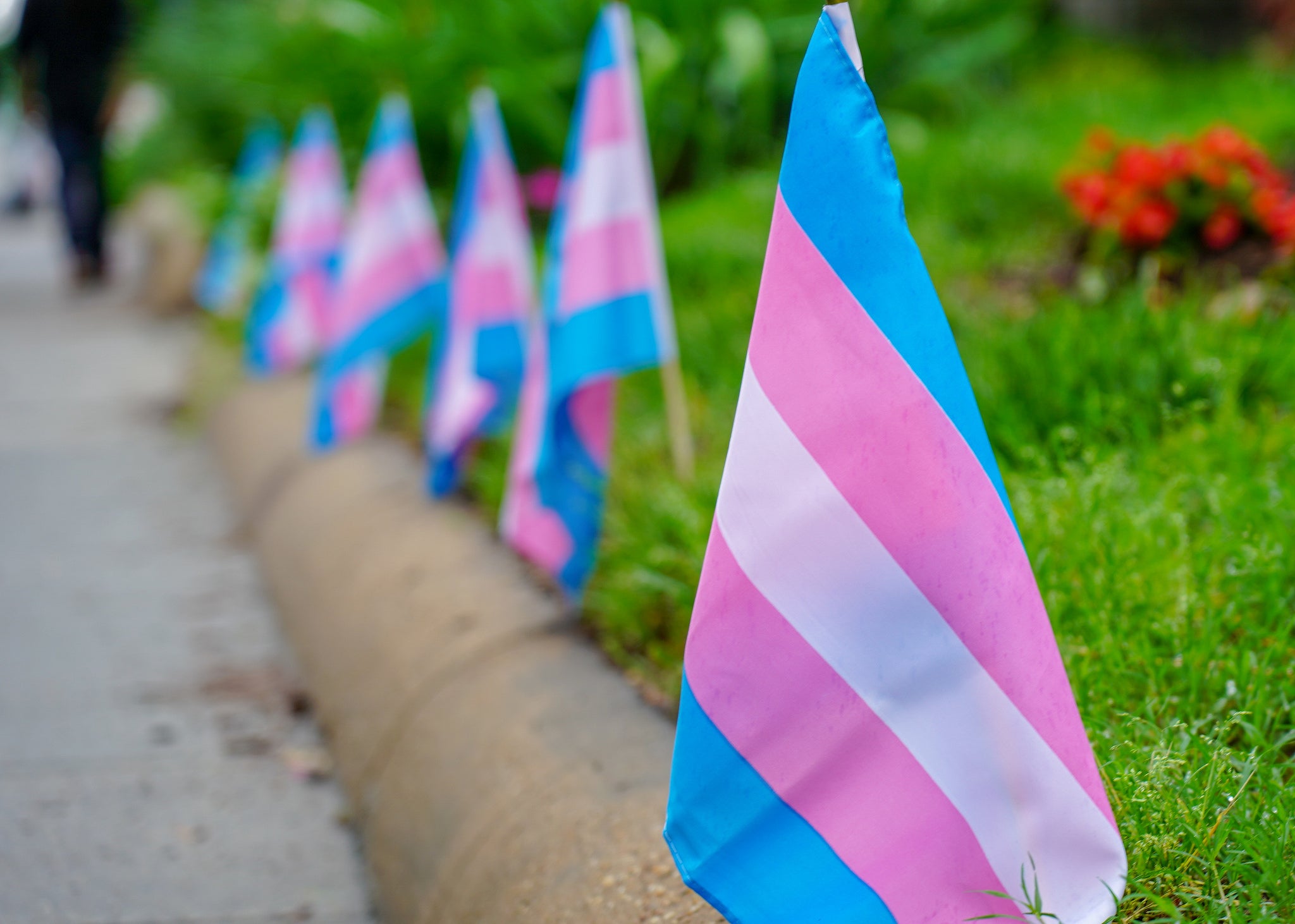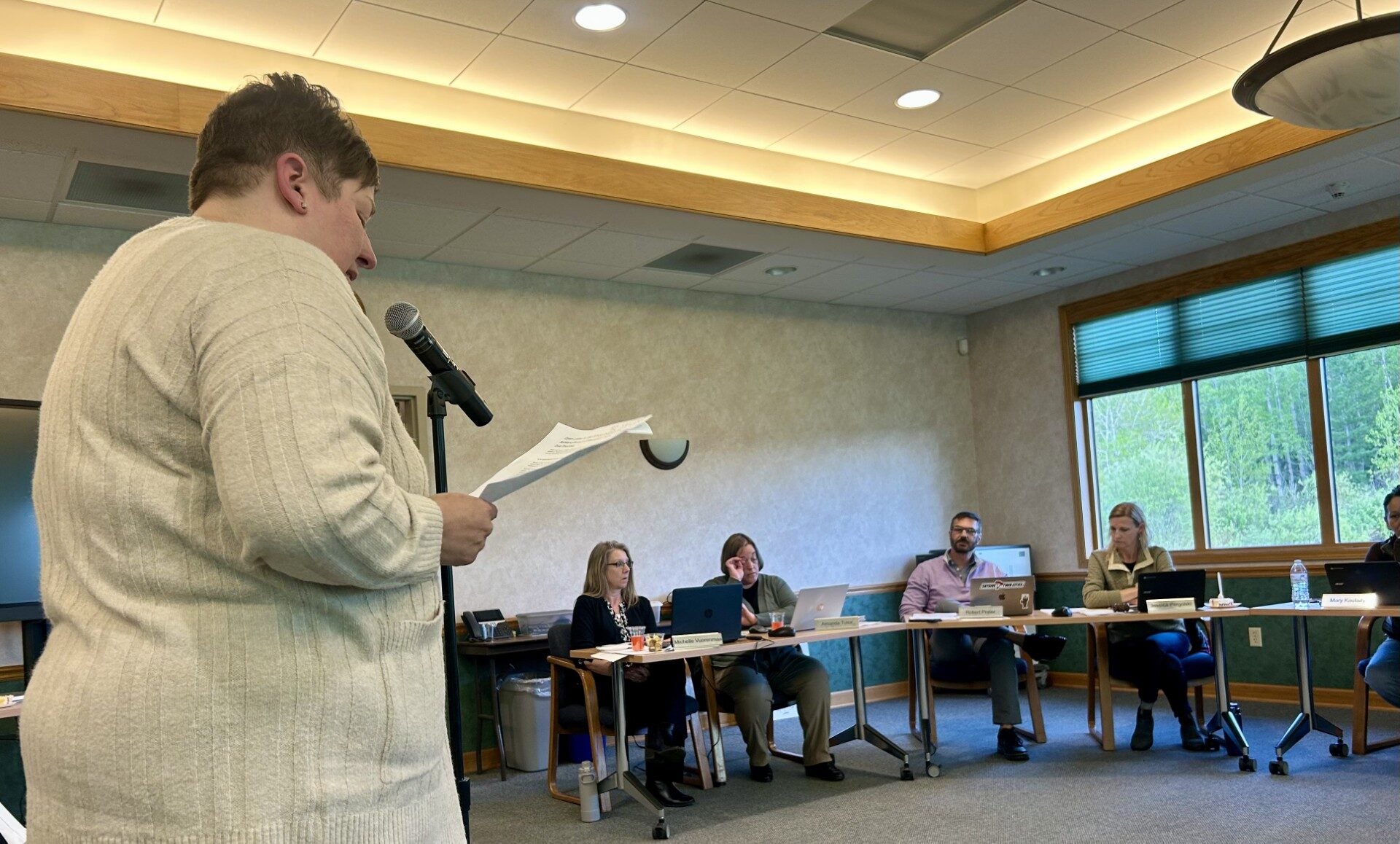After students, parents and a former teacher spoke out about anti-gay bullying in the district, the Ashland School Board directed the administration to take action to combat harassment.
Ashland Schools Superintendent Rob Prater told WPR the Ashland School Board asked him Monday to visit every school building to ensure the district is empowering teachers and staff to address inappropriate comments. The board also directed him to consult with an outside group to analyze equity in the district. He said that work will move forward by the end of the week.
The move follows the resignation of Phillip Brede, who taught English to ninth grade students.
In an Oct. 3 letter, Brede said he was resigning amid apathy within the district over anti-gay treatment he’s faced in the last several years. In a meeting Monday, Brede told the board that students transferred out of his class and mocked him for being gay, noting he constantly overheard them using gay slurs like the f-word in the hallways.
In recent years, Brede said he also felt passed over for a drama position and was forced to stop screening the film “Love, Simon” in class, which features a gay protagonist, receiving a letter that cited the screening as insubordination. He also told the board that the mother of a student called him a sin, saying her child’s discriminatory behavior toward him resulted from Brede bringing “gayness” into the classroom.
Brede said he has asked for staff training and inclusive curriculum countless times.
“In fact, right now, that is still the only thing that I have asked for, and still is the only thing I ask for. To my students who I left, I hope that your school can support and love you and that my suffering wasn’t in vain,” Brede said. “To the board and to administration, your negligence is unacceptable for a public school that has a history of hatred.”
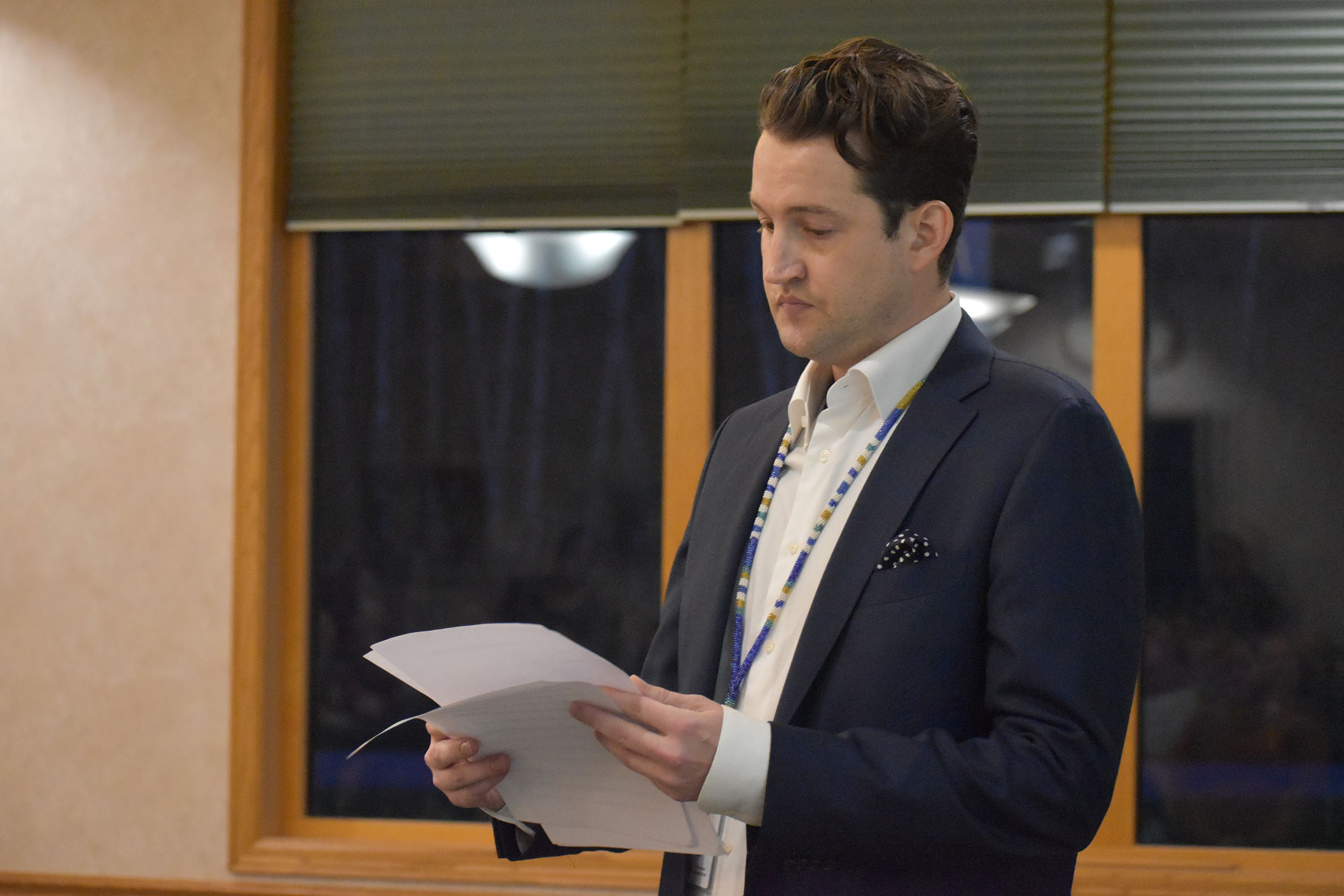
News with a little more humanity
WPR’s “Wisconsin Today” newsletter keeps you connected to the state you love without feeling overwhelmed. No paywall. No agenda. No corporate filter.
Brede and others referred to a lawsuit brought nearly 30 years ago by Jamie Nabozny, resulting in a nearly $1 million settlement. Nabozny sued school officials for failing to protect him after he was harassed and physically abused by fellow students for being gay. In 1996, a federal appeals court ruled officials violated his right to equal protection by discriminating against him, setting a national precedent that schools could be held liable for not stopping anti-gay abuse.
Prater said students were disciplined in cases referenced by Brede. Prater added the district launched a Title IX investigation this fall after Brede said he experienced constant discrimination.
“I think I heard (Brede’s concerns), and believe we need to have more of a supportive response for our students as well,” Prater said. “I hope to do more on the support of the students.”
Brede said the investigation didn’t move forward since he opted to resign, adding he felt the process would’ve hurt him and others rather than achieve his goal of training and inclusive curriculum.
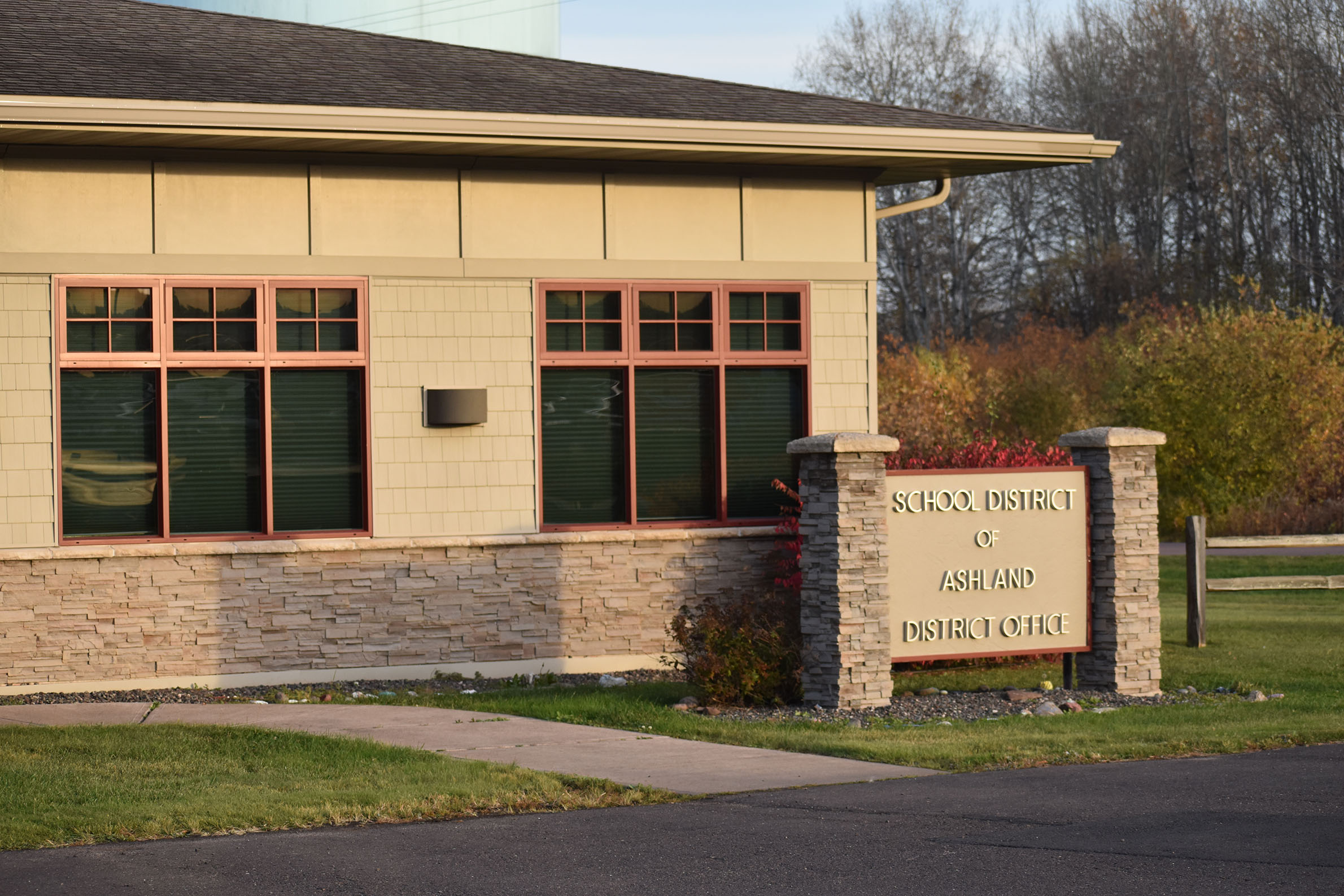
Community speaks out against anti-gay discrimination
Brede was among around 15 teachers, parents, students and community members who spoke out against discrimination at the district. High school junior Dorian Foster-Reimer became emotional as they recounted the bullying and discrimination they’ve faced since coming out as queer in the eighth grade.
“In recent years, I’ve been told that I deserve to die for being queer. I’ve been told that all gay people deserve to die for being queer. I’ve been told that queer people should be banned from school in any public spaces,” Foster-Reimer said. “I’ve had paper and balls thrown at me, as well as insults to my chosen name. I’ve been called variations of the f-slur on multiple occasions, and have even had rocks and sticks thrown at me when I wore a pride flag in my freshman year because it was the first day of Pride Month.”
Foster-Reimer said they went to administration, but officials did nothing. Ashland resident Kate Arnold Ullman also said the district’s annual pupil non-discrimination reports inaccurately reflect that there are little to no instances of harassment, racial or sex discrimination among students.
Prater said reports of bullying are often underreported, saying the district is similar to national trends. Last year, more than one-third of Ashland students say they’ve experienced bullying either at school or online. Federal data shows about one in 5 students reported being bullied in the 2021-2022 school year.
Katie Kacvinsky, who teaches English at the high school, said her 13-year-old son has been bullied for years as students have hurled gay slurs at him for playing soccer.
“This is what he hears, that soccer is a (f-word) sport. Soccer is for gays. Soccer is (f-word) ball, and lately he’s been called a queer,” Kacvinsky said.
When the incidents were reported, she said principals in the middle school spoke to members of the eighth grade football team and coach about the treatment. She said that prompted more backlash for her son from those students. She called for mandatory Title IX training for all administration and staff at the district.
Title IX prohibits discrimination on the basis of sex in all education programs that receive federal funding, and Prater said mandatory trainings are in place for administrators and staff.
Jake Levings, the district’s equity coordinator, read an account from his 15-year-old son Noah, who said he felt he could be jumped for being an LGBTQ+ ally. As a former administrator, Levings acknowledged it’s a tricky situation that requires creating an awareness of bullying and harassment among bystanders rather than punitive measures. His partner and Noah’s mother, Janna, described the situation as a “culture of cruelty” at the Ashland School District.
“We’re not asking for special treatment, we’re asking for decency,” she said. “What’s worse is that peers and mentors alike see it, and they look the other way.”
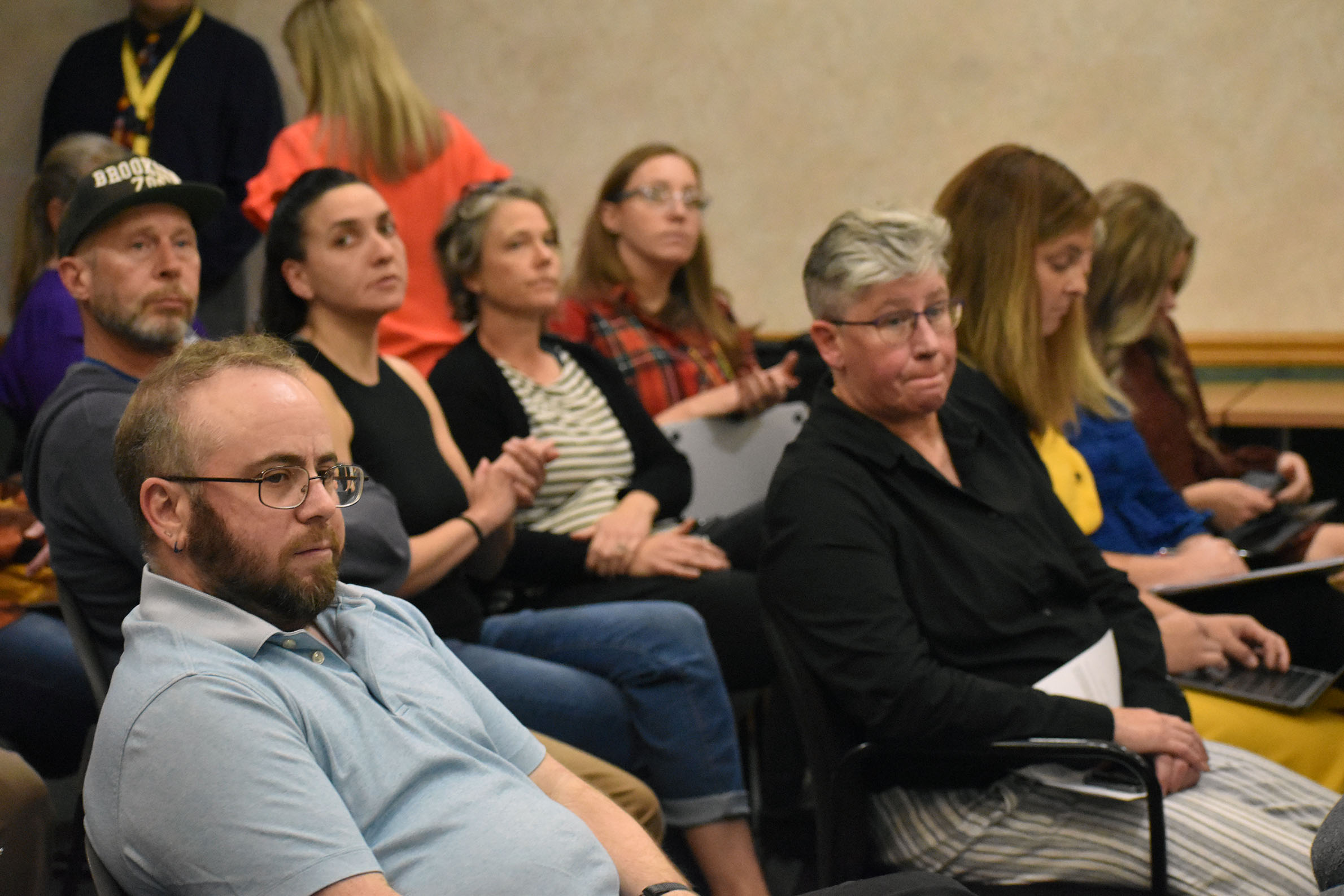
Faith leaders, community members call for more training
Fr. Mark Ricker, an episcopal priest in Bayfield, also spoke on behalf of a coalition of around a dozen faith leaders in the surrounding area that called for repeated annual training from GSAFE, an organization that seeks to create just schools for LGBTQ+ youth.
Prater noted the district conducted a GSAFE training for staff three years ago, adding the district conducts its own version of that for all new staff during their orientation every year. While many trainings should be annual, Prater said there’s only so much time or resources available to deliver them, adding the state doesn’t have a dedicated fund for professional development.
As the district moves forward, Prater added that officials will seek alternatives to punitive measures like suspension and expulsion that have been used in the past to address bullying and discrimination. He said those processes will include more follow-up with victims, as well as no-contact agreements to prevent negative interactions.
He said the stories shared at the meeting were tough to hear and left him hurting for students and staff.
“Though I heard a lot of things they didn’t love to hear that our students and staff have gone through, I did hear a lot of community support for tackling the problem,” Prater said. “That left me feeling really positive.”
Brede said he’s hopeful changes will be made for students.
“I am cautious, and I hope that the people who showed up (Monday) are able to have some accountability,” Brede said. “So this school can be what it really should be.”
Wisconsin Public Radio, © Copyright 2025, Board of Regents of the University of Wisconsin System and Wisconsin Educational Communications Board.

